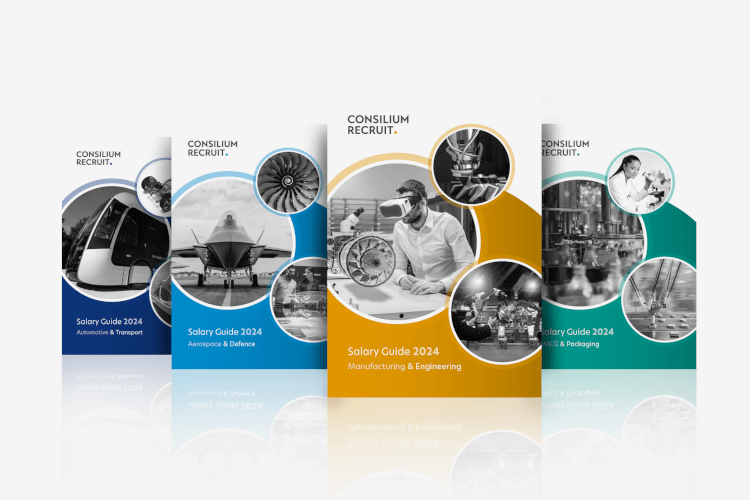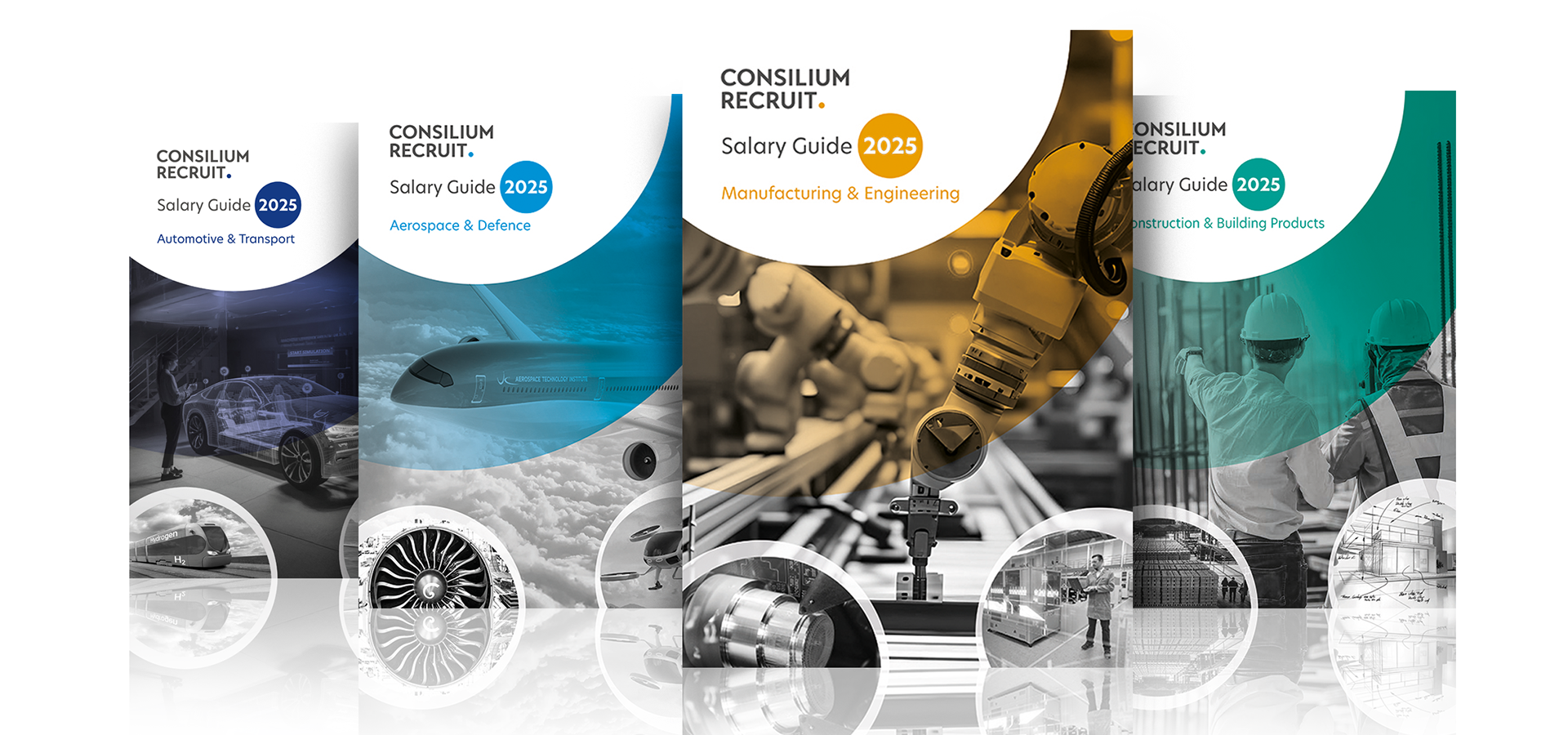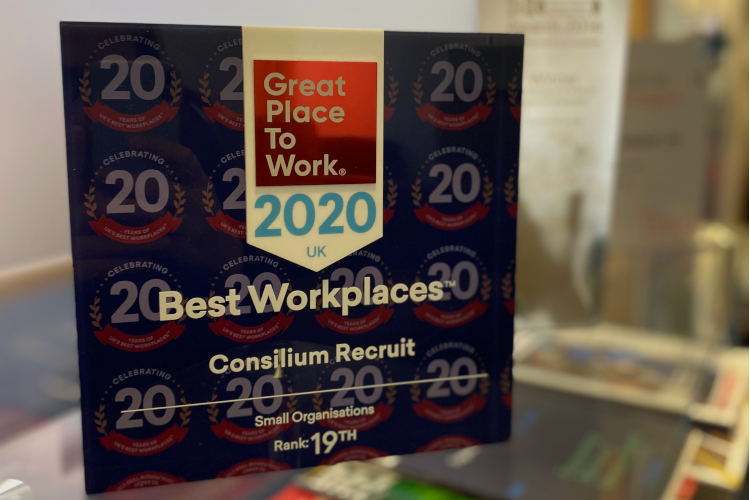2025 Consilium Salary Guides - now available!
2025 Consilium Salary Guides – now available!
Much anticipated, the annual Salary Guides compiled by Consilium Recruit are now available and free to all employers and jobseekers alike!
Among the most comprehensive available and providing the up to date guidance on recruitment trends coupled with latest salary and benefit awards, our guides covering four separate market sectors and available to order free if you follow this link
( https://www.consiliumrecruit.com/consilium-salary-guides)
Prepare for the future of hiring…!
2024 proved to be a challenging year for recruitment with statistics showing a general drop in vacancy numbers across the Manufacturing & Engineering sectors compared to the previous year. Despite this, skill shortages showed little sign of easing with many employers still struggling to recruit for core positions across the majority of disciplines.
This is not expected to ease as we enter 2025 with the labour market remaining tight and in-demand candidates continuing to have the upper hand.
Looking ahead, the UK workplace and cost of employment is also set to become more complex following the introduction of the Employment Rights Bill plus Budget legislation during 2025 that will likely influence HR strategy as organisations both large and small adapt to the reforms plus accommodate the increased costs of employment.
So, based on our own findings coupled with independently published research, we have outlined the main trends, initiatives, and challenges expected to affect talent attraction and retention in 2025.
Salary Trends
Encouragingly, 2025 is expected to offer more certainty to employers with hiring plans expected to gradually return following a more subdued second half to the previous year. Accordingly, this is expected to translate into high-quality reward packages to aid both acquisition as well as retention of essential staff in key positions.
Despite the cost pressures associated, a large proportion of employers plan to increase salaries in 2025 to address the talent war which compares favourably with employees ranking job security as importantly as financial reward. Stability in the workplace has clearly become a more critical concern.
Generational Expectations
With greater awareness of the four main workplace generations co-existing, and certainly in larger organisations, there continues to be a disconnect regarding salary expectations plus benefits received. Gen Z and Millennial age groups appear to be the most demanding which may be reflective of the impact of cost of living on these ambitious and career progressive generations where home ownership still remains a key driver.
Conversely, Gen X and then Baby-Boomers are seen to be less demanding in terms of salary expectation which often reflects their more stable and established existence and particularly in regard to expected career advancement.
Flexible Benefits
The provision of flexible benefits has gained momentum with many employers now offering this choice where possible, resulting in a highly attractive and adaptable perk that is becoming ever more expected by employees.
Benefits packages are widely varied and hence appeal to employees in different ways, but especially when they help to ease living costs such as financial support for remote working, or benefits that ease daily life, such as childcare support, flexible hours, or meal vouchers.
Hybrid Working
With hybrid here to stay as a working model, many organisations remain unsure of balance with many organisations and certain industry segments tilting in favour of a higher workplace presence with a general belief that site presence results in increased employee productivity.
What’s for certain is that an element of WFH remains highly appealing to many job seekers and a perk that can directly affect recruitment as well as longer term retention.
Automation and AI
There is no escaping the spread and influence of AI and Automation in the workplace and across so many industry sectors as well as disciplines. Accordingly, the majority of employers in the UK have already started or plan to encourage exploration of generative AI tools in an attempt to streamline routine tasks and improve productivity.
Similarly, within advanced sectors such as Automotive, automation and digital transformation programmes (Industry 4.0 and IIOT) are already largely underway with the ultimate aim to boost productivity.
Training & Re-skilling
With the on-going skills shortage not showing signs of easing, and particularly in view of tightening immigration controls plus rapid pace of technological advancement, demand for engineering, manufacturing and technical talent remains a major concern.
Many forward thinking organisations have sought to counter this through in-house training and development to plug those gaps and return productivity gains.
Additionally, in support of this, employees are increasingly pursuing personal development with an increasing trend towards external training that often requires time off but funded by employers as a means to close the gap.
With 2025 far from certain in outlook, the war for talent is set to continue which only reinforces the importance of strengthening talent attraction strategies while embracing technology to drive efficiency and competitive advantage. To succeed, employers must especially adapt to the needs of a multi-generational workforce, combined with a level of support and flexibility that maintains a truly competitive edge in today’s workplace.










